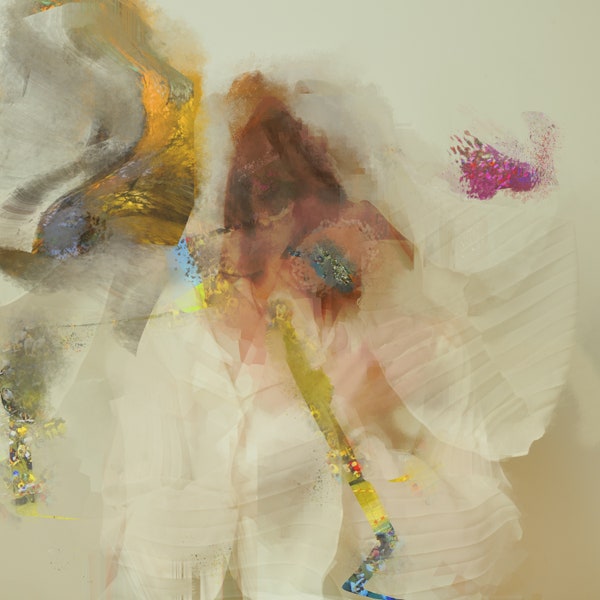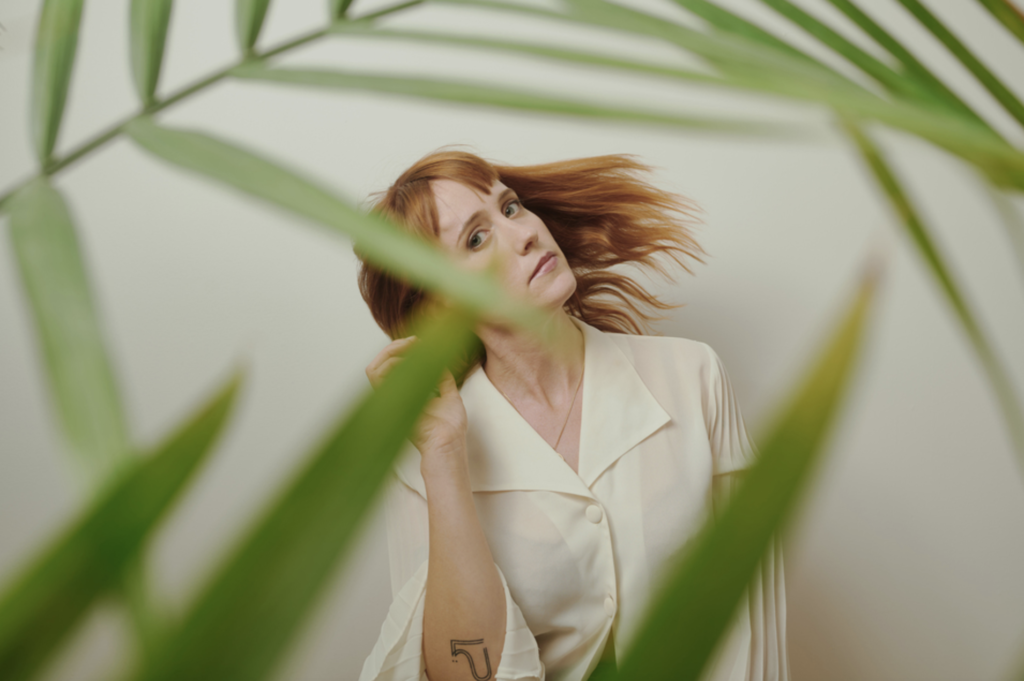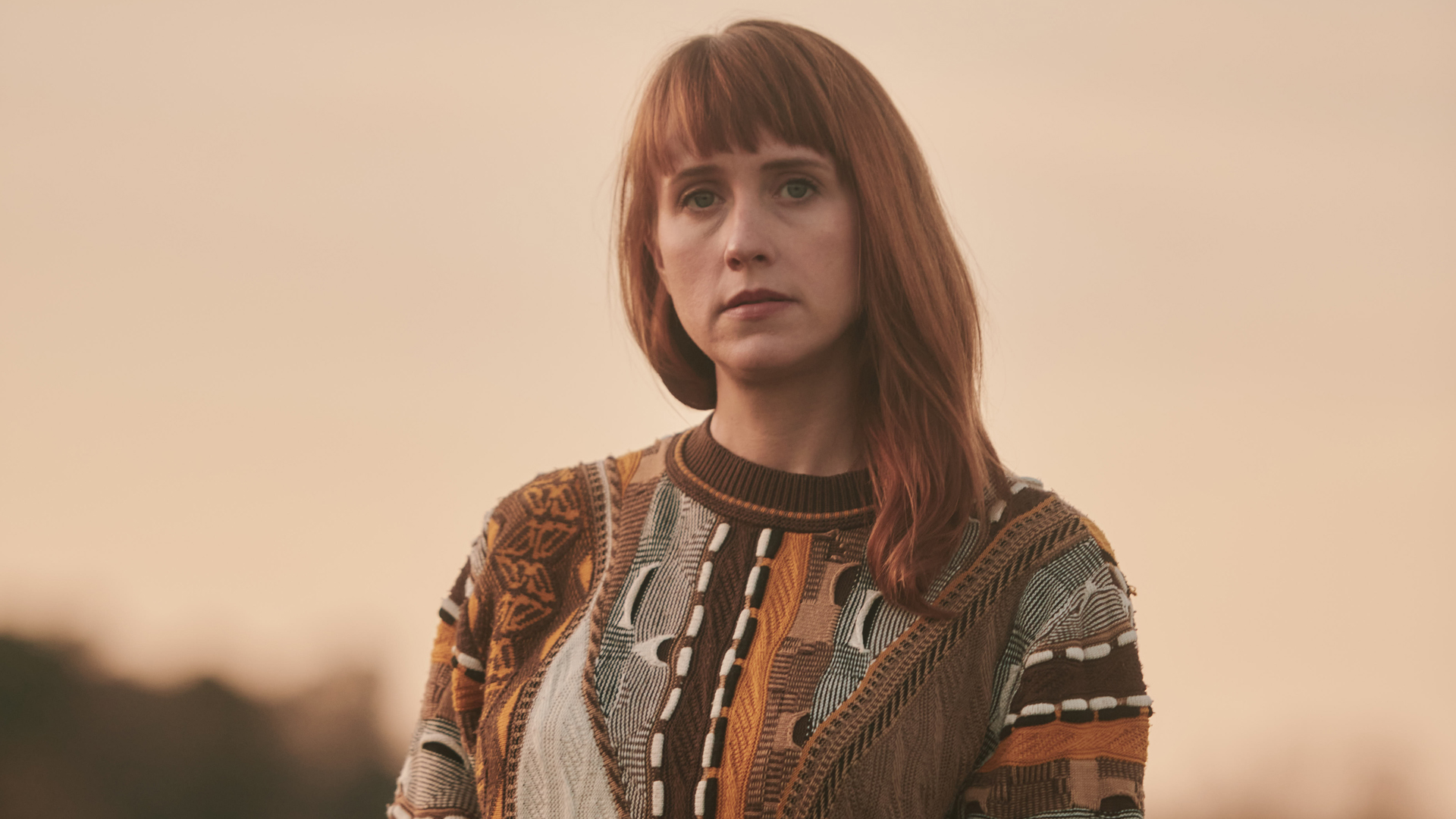Foto-© Graham Tolbert
Jenn Wasner, ansonsten auch mit Andy Stack als Wye Oak oder mit Jon Ehrens als Dungeonesse, sowie als gefragte Musikerin für Kollaborationen umtriebig, kann es nicht lassen und veröffentlichte zuletzt mit ihrem zweiten Solo-Album als Flock of Dimes die nächste 10-Song-gewordene Spielwiese für ihr Songwriting! Darauf lebt die Multiinstrumentalistin, Produzentin und Songwriterin aus Baltimore ihre experimentierfreudige Seite für ausladenden und hochmelodischen elektro-akustischen Indie-Pop aus. Wir sprachen mit der Musikerin über Kreativität, wie sie die Vielzahl ihrer Projekte sortiert bekommt und vieles mehr – unser Interview!

First of all – how are you and how did you experience this worldwide pandemic?
I’m doing well, thanks! Certainly better than this time last year. How did I experience the pandemic? Hmm. That’s a pretty big question, huh? It was absolutely devastating and also completely life-changing? I barely recognize the person I was and I wouldn’t want to live through it again if you paid me a million dollars?
In all seriousness, although it was a hard year for me, I also want to acknowledge the fact that I am exceptionally privileged to even be answering that question—I was very fortunate to even have the choice to self-isolate and ride it out. The vast majority of people were not so fortunate.
Was it through the pandemic that you had time to return to your solo project, without touring on the schedule with your other projects or was it in the schedule anyway? Why did you decide to work on a new Flock of Dimes record in the first place?
I’ve always managed to find the time to be creative, although not touring certainly made it easier. People have commented on how “productive” I was this year, but honestly, I felt like I had a far healthier relationship to my work this year than ever before. I was able to write as much as I wanted to while still allowing myself to learn how to slow down and rest.
Why did I decide to work on a new Flock of Dimes record?
I mean…making records is what I do! Why do birds fly? I don’t know. Because they can? I need to write and make things to understand myself better, and the better I know myself, the easier it is for me to understand and have compassion for others, and for the world at large. For me, that’s the purpose of existence and I feel exceptionally lucky to have the opportunity to dedicate my life to the task.
I think one of the main themes I want to address is how you create music. You have so many projects (solo, Wye Oak, Dungeonese) perform with other bands or appear on other records – is it that you see your musical output as a regular profession and steadily take your hours to work on new music (like Nick Cave does with his “working hours”) or do you have creative pushes? Is it easier to be creative when you have several projects and partners in that, that push you in other directions…or how would you describe the process with your several projects (or is it the kind of the same for you with any of those)?
I think it ebbs and flows, depending on where I’m at in life and what my schedule demands. I think there is always a way to find time and space to be creative, even if the circumstances are not optimal. I think it’s easy to use that as an excuse—like, I can’t write unless I have all of these unbroken hours in this one specific workspace—but in reality inspiration often strikes when you’re not looking and you have to learn to attune yourself to it. Usually when I’m not on tour I love to carve out a few hours each day to think, write and play music, but I won’t force it if I’m not feeling it. And even when I’m busy, or traveling, I can carve out a few minutes to jot down some ideas and try to stay connected to that feeling.

Through the pandemic did you feel that you were more or less creative – and why would you say?
Here are some more general thoughts about creativity: I’m not sure if I think people are “more” or “less” creative. I think all people are naturally creative, and some people choose (or are fortunate enough to have the opportunity) to foster that impulse. Perhaps there is some amount of natural affinity/tendency but I’d like to believe that creativity belongs to all of us, not just to those of us who identify as “creative.”
I do think there are certain life experiences that perhaps ask more of us than others (grief, loss, heartbreak—anything that requires us to push against our growth edges)—and in those places, creativity can be a valuable tool. I experienced much of the above this year, and I also had a lot more time on my hands, so of course it makes sense to me that I was more productive. I had so many things to heal and process. But I don’t think that makes me “more” or “less” creative. I am always the same amount of creative, whether I am actively producing something or not.
Although it’s a solo record, you worked with several musicians on it, including your Wye Oak-colleague Andy Stack – but how does your role change when working on a solo record, what do you like more/less about it?
For me it’s about having a multitude of creative outlets, not necessarily trying to arrange them in some kind of arbitrary hierarchy. Everything has its place. There are some things that are more challenging in collaboration, and some things that are easier. Being able to be in collaboration makes me appreciate working on my own, and vice versa.

Could you describe a bit the production press of Head of Roses, what was the best/what the worst moment during the production? What’s the most told anecdote from that time?
Well, we were all quarantining together at the studio (Betty’s, in North Carolina) for two weeks at a time when everyone was very starved for human contact. So the entire experience felt extremely magical, from start to finish. I’m always happiest when I’m working in the studio, but I don’t think I’ll ever have another experience quite like this. We were all so present and awake to one another, and felt so exceptionally lucky to be making music and sharing space.
For the record you did work with Nick Sanborn as producer – why did you choose to work with him and which influence did he have?
Nick is a really exceptional producer and human being. He’s extremely gifted, musically, and also has the natural ability to understand how sound works and how to make all of the machines work together and talk to each other. But he also understands the poetry of music, and can just as easily talk about the emotional undercurrent of a song, and have an awareness of the purpose of each decision in service of the greater whole.
We also read that Sanborn and you did put the record together like a mixtape – how can we imagine that and how did that change your perspective on the record during the production?
Well I think I’ve always been something of a shapeshifter, aesthetically, and so our intention was to both acknowledge that as a part of who I am creatively, while still creating something that sounded connected, like a cohesive whole.
We read that you mentioned the record would be about heartbreak, from a dualistic perspective – could you describe what you mean by that?
Well, in my experience I was contending with being hurt deeply by someone I loved, yet knowing that I’ve been the source of that same hurt in the lives of others I also cared about very deeply. I was trying to acknowledge the uncomfortable reality that it’s impossible to move through the world without experiencing pain and also being the source of pain for others. We are all harmed, and we all cause harm. Learning to accept the co-existience of those two truths is, I think, a vital step in learning how to forgive each other and ourselves, and move forward. And I think this true both in our intimate relationships and in our experience in the broader systems of the world at large.

Price of Blue is one of our favorite songs of the record – could you tell us a bit how it was done, what it is about and what’s the story behind the song?
Price of Blue was placed early in the record because it’s got a lot of anger in it, and anger is one of the first stages experienced in the grief process. I tend to move through it pretty quickly—perhaps too quickly, so I’m trying to accept and make peace with my own anger as an important, vital and healthy emotion. This song is way of trying to process that anger, to truly feel it and express it, rather than just repress it and rush myself through the process of moving forward before it’s naturally time to do so.
The last Wye Oak record came out in 2018 – also some time ago…can you tell us, if there are plans about a new record coming out soon?
There will be new Wye Oak music soon, but I’m not in a huge hurry to make a record. I’m mostly just going to try and get back into a healthy, daily creative practice and when I have something to say, or something worth sharing, I’ll know.
What are your next plans?
Try to do less. Try to figure out how to re-introduce work back into my life in a way that is joyful—more healthy and not overwhelming.
What are you doing when you’re not making music?
Honestly, nothing terribly exciting. My daily routine usually involves some form of exercise (often yoga or a long walk), meditation, and making time and space for the people I care about most. Sounds boring, but it makes me happy.










